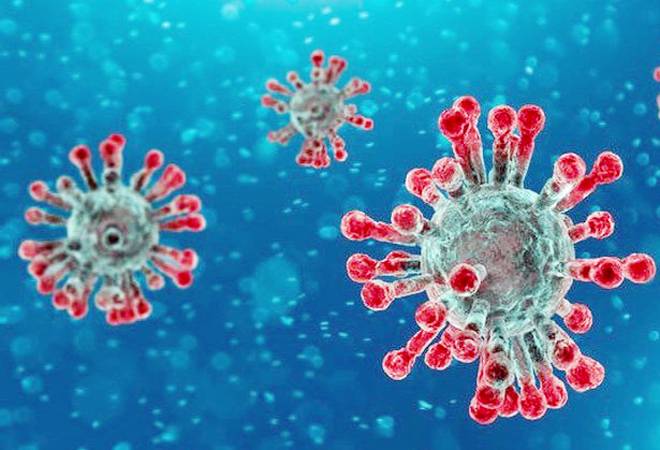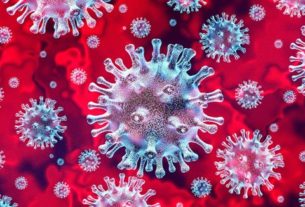From Our Bureau
11TH JULY 2020
India witnessed a big surge with 27,114 fresh COVID-19 positive cases reported on Saturday, the highest for a single day, taking the country’s cumulative tally to 8,20,916. The death toll rose to 22,123, with 519 fatalities recorded in the last 24 hours.
However, a series of pro-active, pre-emptive and coordinated measures have been taken by the Central government and the States for containment and prevention of COVID-19.
Recovered
cases cross 5 lakh; outnumber active cases by more than 2.32 lakh
Coupled with effective implementation of containment zones, surveillance activities, timely diagnosis and effective clinical management of COVID-19 cases, the cumulative number of recovered cases among COVID-19 patients has crossed the 5 lakh mark today. 5,15,386 COVID-19 patients have so far been cured and discharged. The recovered cases outnumber the COVID-19 active cases by 2,31,979.
With this progressively widening gap, the recovery rate has further improved to 62.78 percent. During the last 24 hours, 19,870 COVID-19 patients have been cured and discharged.
There are 2,83,407 active cases under medical supervision either in the central and state government hospitals for severe cases, or in home isolation for pre-symptomatic patients and those showing moderate symptoms.
Recent policy changes like allowing all registered medical practitioners to recommend testing for COVID and introduction of Rapid Antigen point of care testing along with RT-PCR has substantially bolstered the COVID-19 tests in the country. So far, 1,13,07,002 samples have been tested through the collective public and private labs under ICMR’s diagnostic network of 1,180 labs in the country.
While the labs in the public sector have appreciably increased to 841, the number of private labs has also been strengthened to 339. These include Real-Time RT PCR based testing labs: 620 (Govt: 386 + Private: 234), TrueNat based testing labs: 463 (Govt: 420 + Private: 43) and CBNAAT based testing labs: 97 (Govt: 35 + Private: 62).
The per day tests are demonstrating a steep upward trend with 2,82,511 samples tested yesterday. As on date, the Test per Million (TPM) for the country stands at 8,193.
Standard of care for Clinical Management Strategy for COVID-19
The approach for treatment of COVID-19 is largely based on asymptomatic and supportive care, since there is no cure as yet. Maintaining good hydration is also essential. Based on severity of symptoms, COVID-19 can be categorised into 3 groups: mild, moderate and severe.
In a Video Conference with States and a virtual meeting on “COVID Case Management by State/UT Centres of Excellence” on 10.07.202, ICMR and AIIMS, New Delhi emphasised that in the absence of a cure, the standard of care treatment for mild, moderate and severe cases as described in the Clinical Management Protocol of Ministry of Health & Family Welfare (MoHFW) would be most effective.
For moderate and severe cases, adequate oxygen support, appropriate and timely administration of anti-coagulants and widely available and inexpensive cortico-steroids, in accordance with the protocol, can be considered to be the mainstay of COVID-19 therapy. For mild cases, which are nearly 80 percent of the total cases, Hydroxychloroquine (HCQ) has been recommended. The standard of care treatment strategies have shown to yield positive results.
The pursuit of an effective treatment for COVID-19 has also resulted in repurposing of several drugs which are not a part of the main Clinical Management Protocol but have been indicated as “investigational therapies.” These can be used in specific sub-groups of patients on the basis of informed and shared decision making with the patient before prescribing these drugs.
These drugs have still not been approved by the Drugs Controller General of India (DCGI) and are only permitted for restricted Emergency Use for COVID-19. The States as well as the Medical College hospitals designated as Centres of Excellence were reminded by ICMR and AIIMS that their indiscriminate use or use in conditions for which they are not desirable, may cause more harm than good.
The States were also told that the available evidence for Remdesivir suggests that it may decrease the time for clinical improvement when used in moderate to severe cases. However, there have been no benefits in terms of reduced mortality. It has to be used with extreme caution due to its potential for serious adverse effects including liver and kidney injury.
Similarly, for Tocilizumab, studies have not shown any benefits in mortality reduction. However, if used for patients with severe conditions, proper informed consent is required. Rampant use is to be discouraged since the effect of the drug is directed at the ‘cykotine storm.’
All the ‘investigational therapies’ are required to be carried out only in proper health care facilities where close monitoring of patients is possible so that potential complications can be managed.
ICMR strongly recommended that the focus of clinical management should continue to remain on oxygen therapy (including high flow nasal oxygen), steroids (which are widely available and inexpensive), appropriate & timely administration of anti-coagulants and high quality supportive care, including mental health counselling for patients and families, proning, management of pre-existing illness and palliation of symptoms. (eom)


